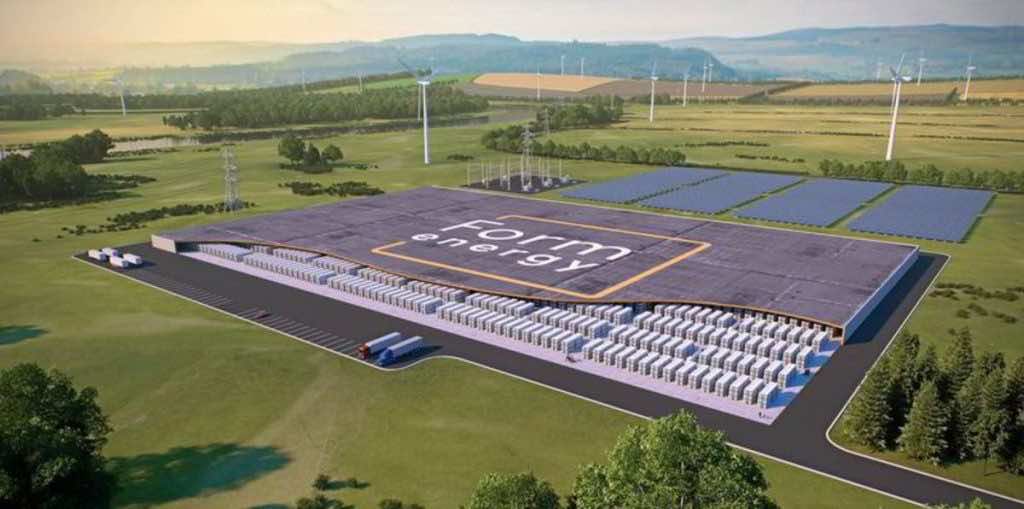It is evident from the extreme energy crisis all over the world that the earth is running out of options for powering its operations as fossil fuels and other sources of non-renewable energy are depleting fast. Recently, there has been a massive shift towards renewable forms of energy for both industrial and domestic uses. These sources are mainly wind and solar energy. It is a wise decision to depend on naturally occurring and never-ending sources of energy rather than relying upon limited fossil fuels that, if ended, will not be regenerated for centuries to come.
The company, Form Energy, in Boston has developed an innovative way to store the energy that is trapped from natural sources like the sun. The project is proposed for commercial use with a giant grid-scale setup of batteries in a battery farm. These batteries are not made up of lithium. In fact, they are iron-air batteries that can store energy for around 100 hours. The cost of this storage is 10% of the costs incurred when a conventional lithium-ion battery is used.
Since wind and sun are not available all the time and all year round, these batteries will help store the energy, so any inconvenience is not experienced. Tesla used lithium-ion batteries in its energy storage project in South Australia. However, these batteries are not the best option. They are expensive, wear out fast, and are not the best in terms of energy storage. On the contrary, iron-air batteries are the opposite of this, and hence, well-suited for the job.
The technology of iron-air batteries was first addressed in 2012. The main process is the rusting of iron in air and then with the released energy, the iron turns back to its metallic state, releasing oxygen. This phenomenon has made the company build the largest battery storage form. It is said that the anode created is the biggest one made yet, and it can give out 1-3 megawatts of continuous power per acre.
The project has raised around US$300 million, and it is expected to be combined with regular lithium-ion batteries for better and faster provision of energy. The main investors were ArcelorMittal and Gates/Bezos-backed Breakthrough Energy Ventures. In Minnesota, the first project is launched, expected to give out 150 hours of power.

